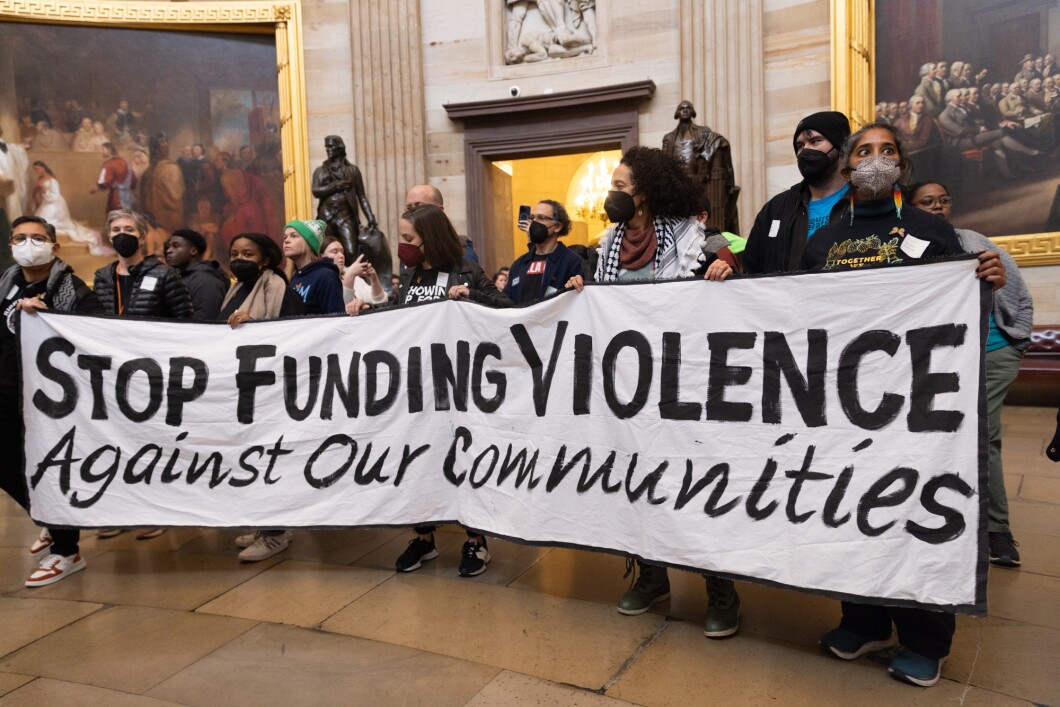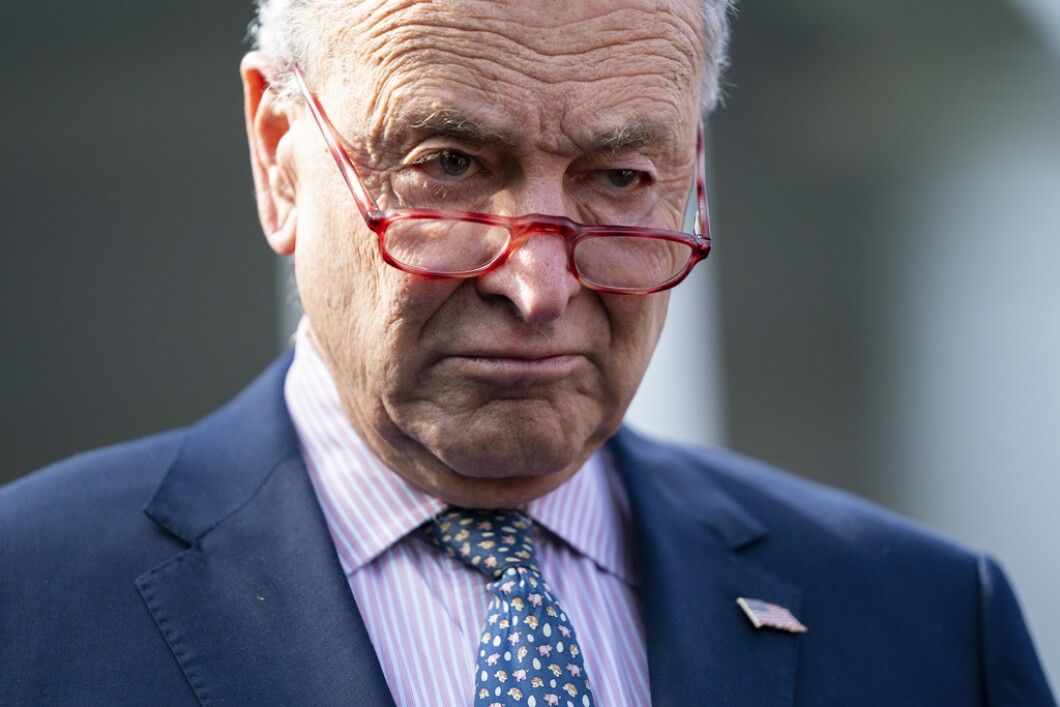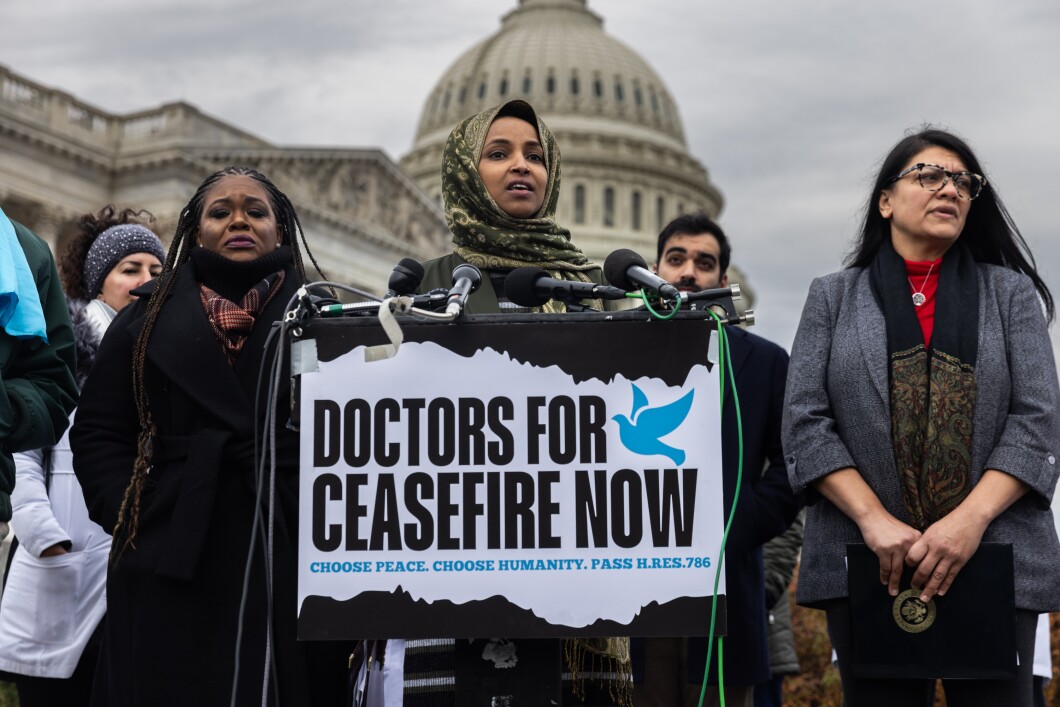
Natalie Rozet describes herself as a lifelong Democrat — who has spent years supporting progressive causes promoting racial equality, gay rights, and reproductive rights.
But after the Oct. 7 Hamas attack, the worst killing of Jews since the Holocaust, Rozet, who is Jewish, said she feels betrayed by people she thought were allies, who have been expressing anti-Israel and antisemitic rhetoric.
THREE TIMES JOHN FETTERMAN BROKE THE MOLD AND SURPRISED CONSERVATIVES SIDING WITH HIM
In the immediate aftermath of the attack, many progressive groups took to social media and immediately tried to justify the actions of Hamas. Black Lives Matter chapters across the country shared several social media posts implying support for Hamas.
In a post on X, formerly Twitter, the Chicago chapter posted an image of a paraglider, a reference to Hamas’ use of paragliders to enter Israel to attack civilians, with the message “I stand with Palestine.” A reproductive rights group took a stand, claiming the Israeli government denied “Palestinians control over their bodies” and that “there can be no justice, peace or reproductive freedom underneath colonial occupation.”
Protests across the country and the world have featured chants of “From the river to the sea, Palestine will be free,” a slogan that Jews understand as a call for the destruction of Israel.
“It was such a shock to see people who have little to no information or understanding of what is going on, joined this wave of anti-Israel protesting and sentiment and that was the scary part,” Rozet said in a phone interview. “It wasn’t even that people stopped being empathetic toward Israel, it’s how quickly Israel was vilified after Oct. 7.”

A large majority of Jewish Americans have consistently voted for Democrats, but the war is highlighting the divide within the Democratic Party over Israel policy. Rozet, 30, a dual-citizen who was born in Israel and moved to the U.S. in fourth grade, said she’s been so frustrated with how the party in general has handled the situation.
“I am a life-long Democrat whose vote is up for grabs for the first time ever by Republicans,” Rozet said. “The betrayal isn’t just from Democratic politicians; it’s from the entire culture of progressive politics that just feels like they don’t care about us.”
Interviews with a dozen liberal Jewish voters who reside in the Washington DC area reveal a growing frustration with the left wing of the party. The aftermath of the Hamas attack has brought back painful memories of the Holocaust and a new wave of antisemitism that many Jewish Americans never thought could be possible in the U.S.
“It’s truly an absolute nightmare. We’ve seen protests in front of Jewish establishments, threats of violence; I’ve never in my life been more afraid to be a Jew in America,” said a Jewish Democratic voter, who asked not to be identified due to fear for her safety. “Republicans have really been out in front, calling out antisemitism. I never thought as a liberal Democrat that I’d be so appreciative of Congresswoman [Elise] Stefanik (R-NY) during that hearing with the college presidents,” the person said. “But, where has my party been? The silence is so deafening. To say I’m having a political identity crisis would be an understatement.”
Traditional support for Israel from establishment Democrats has been clear, with President Joe Biden making an unprecedented wartime visit to the country and pledging aid and support. Late last month, Senate Majority Leader Chuck Schumer (D-NY) issued an urgent warning about the rise of antisemitism in America, directing his comments toward young liberal protesters.
“Many of the people who express these sentiments in America aren’t Neo-Nazis or card-carrying Klan members or Islamic extremists,” Schumer said during a nearly 40-minute speech on the Senate floor. “They’re in most cases people that most liberal Jewish Americans felt previously were their ideological fellow travelers.”
Schumer, the highest-ranking Jewish elected official in the country, warned against blaming Jewish Americans for Israel’s actions and also slammed the “Free Palestine” slogan that activists are chanting, calling it a “violently antisemitic message.”

“I believe there are plenty of people who chant from the river to the sea, Palestine will be free, not because they hate Jewish people, but because they support a better future for Palestinians. But, there is no question that Hamas and other terrorist organizations have used this slogan to represent their intention to eliminate Jewish people not only from Israel but from every corner of the earth,” Schumer said.
Sen. Richard Blumenthal (D-CT), one of nine Jewish members of the U.S. Senate, who are all caucus with Democrats, said he’s been hearing frustration from constituents as well as family and friends. He said he believes the party is doing everything possible to combat the rise in antisemitism.
“That had been a criticism a couple of weeks ago, but I think the president and all of us have been pretty forthright,” Blumenthal said, implying that the party has condemned antisemitism. “We are a party with lots of different views and I can only speak for myself.”
The reassurance from top Democrats has done little to ease Rozet’s concerns, who points out that cracks have emerged among the Democratic coalition, with a growing portion of the party’s base viewing Israel as the villain in the conflict. Some of them include American Jews who are more critical of Israel and have joined groups that have staged protests calling for a ceasefire.
“One thing Biden could be doing right now is calling out members of his own party that are actively lying about Israel and spreading antisemitic conspiracy theories,” Rozet explained. “That should be the easiest thing in the world for him to do as the leader of the free world.”
The tide has begun to shift in the U.S. Senate too, where some progressive Democratic senators have recently begun pushing an amendment to Biden’s nearly $111 billion national security supplemental request that would place conditions on U.S. aid to Israel and other allies to address the humanitarian crisis in the Gaza Strip.
Sen. Bernie Sanders (I-VT) sent a letter to Biden in December urging the administration to withhold military aid to Israel that lawmakers are currently negotiating as part of a national security spending bill, calling Israel’s military operations in Gaza a “mass atrocity.”
Not all Jewish Democrats are at a political crossroads, with some dismissing the views of more liberal lawmakers, calling them a small and powerless faction of the party.
“Listen, there’s overwhelming support for Israel in the Democratic Party,” said Andy, a Jewish Democratic voter in the DC area who preferred to be identified only by his first name. “I think we’ve seen that in votes that have been taken and again, even if there are some people that defer or aren’t speaking about antisemitism in the way that certainly I would like, I think that an overwhelming majority and especially in leadership, have been rock solid on the issue.”
Biden must navigate complex political terrain ahead of an election next year and is facing increasing pressure from liberal constituents and pro-Palestinian activists to address the humanitarian crisis. Some Muslim Americans have even threatened to “Abandon Biden” and withhold support from candidates who back Israel’s continued war against Hamas.
Lilka Marino, a 33-year-old Jewish progressive voter who lives in Virginia, also said she’s been mostly satisfied with how Biden has responded to the conflict.
“He’s done a lot more than I expected. After so many years of not really expecting anything from either party,” Marino said. “Can he do more? That’s a complicated question for me to answer simply because I know he’s so hamstrung by the more progressive side of the Democratic Party. He will say we’re going to give more aid to Israel one day and the next day he’s putting a time limit on how long Israel can fight. I don’t feel like that’s our place to say, regardless of my feelings about the war.”
The conflict has been deeply personal for Marino, who has a friend who was killed at the Supernova music festival on Oct. 7. She said she’s been more disappointed with the reaction from members of Congress, rather than the Biden Administration.
“As someone who lost someone on that day, I feel like my member, my representative, Don Beyer, he’s been a wonderful representative, but now I feel betrayed by him because he called for a ceasefire and then he abstained from a vote on whether anti-Zionism is antisemitism,” she said, referring to a vote in the House on Dec. 5.
Beyer’s office defended his actions, asserting the congressman abstained “at the request of Jewish members of the Democratic Caucus from participating in a vote on a non-binding resolution.”
“Republicans used [it] to intentionally inflame tensions between on the war and further divide Congress and the country without doing anything to help,” said Aaron Fritschner, Beyer’s deputy chief of staff. “Rep. Beyer’s initial call for a ceasefire was an expression of support for negotiations facilitated by the administration, to which Israel later agreed, for a temporary halt in fighting that subsequently saw the release of dozens of hostages.”
A poll released in mid-November by the Jewish Electorate Institute found 74% of Jewish voters said they approve of Biden’s handling of the war. However, the poll also identified a generational divide among Jewish voters that also reflects the overall population. While more than 80 percent of Jewish voters of age 36 approve of Biden’s Israel policy, just over half of younger Jewish voters said they approved.

“The young generation of the party now, the Squad, AOC, Rashida Tlaib, led by the Bernie Sanders movement, has just gone off the deep end,” said a different Jewish Democrat who resides in the D.C. area and recently changed his party affiliation from Democrat to Independent.
“There are people that are literally calling for Israel to be wiped off the face of the earth, and they’re rising in the Democratic Party now. It’s scary,” he said, requesting anonymity to speak candidly.
CLICK HERE TO READ MORE FROM THE WASHINGTON EXAMINER
The person, who said he has worked on Democratic presidential campaigns for the last 19 years, said he’d consider voting for a Republican for the first time this cycle, in part due to policy regarding Israel.
“My only hard no would be Trump, but any of the other Republican candidates, I’d give serious contention to,” he said. “Especially Nikki Haley, she has my attention.”




